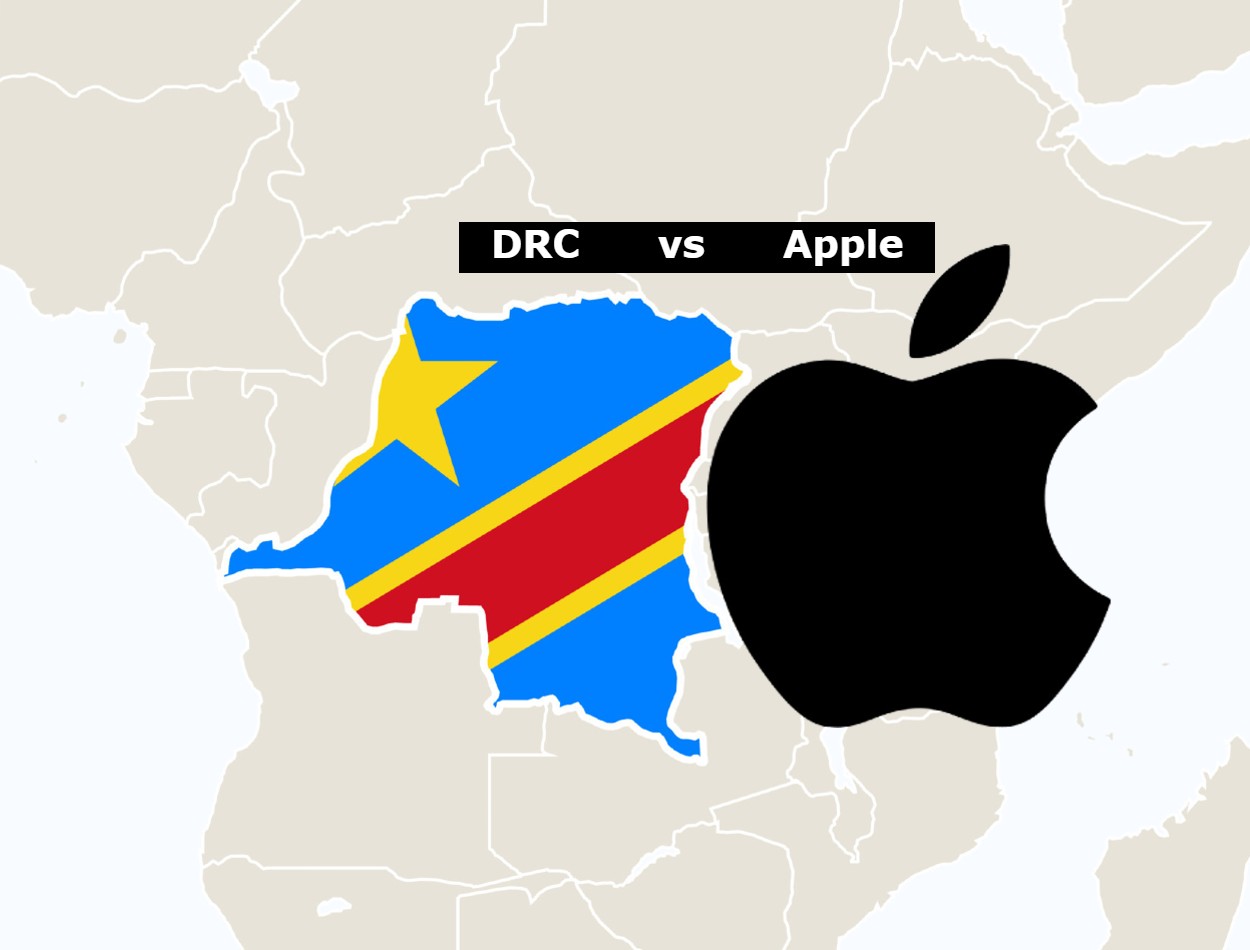You probably have heard this before; your computer or laptop contains at least one component produced using minerals from the Democratic Republic of Congo (DRC). Right, the country’s war-torn east has one of the world’s largest deposits of 3T–tin, tungsten, and tantalum–three critical minerals in the manufacture of smartphones.
The country is now planning to take legal action against Apple in the US and France after it failed to answer allegations linking it to smuggled minerals used to make iPhones and other devices.
In April, DRC through its lawyers US and France-based Amsterdam & Partners LLP and William Bourdon of Bourdon & Associés wrote to Tim Cook, Apple CEO, demanding an explanation of why the company was using blood minerals. According to the law firms, the iPhone maker has not responded.
Now, the lawyers claim they have new evidence from whistleblowers showing that the company has been using minerals stolen from DRC through neighbouring Rwanda and Uganda, an allegation that could damage the reputation of the company which has said in the past that its operations are aboveboard.
“In recent weeks, since the release of the Blood Minerals report by Amsterdam & Partners, we have received new evidence from whistleblowers. It is more urgent than ever that Apple provide real answers to the very serious questions we have raised, as we evaluate our legal options,”
said Robert Amsterdam, Amsterdam & Partners LLP, in a statement sent to BusinessEmpires.Africa.
Apple’s denial
DRC’s lawyer alleges that Apple has not responded to their claims because they are true. But in the past, the iPhone maker has maintained that their supply chain has a tight vetting process that locks out smelters and refiners that source the minerals from war-torn countries.
There have been no independent observers to corroborate Apple’s positions. Experts have said that Rwanda and Uganda play a critical role in mineral smuggling by armed rebels like M23. Because of decades of instability in the mineral-rich country, different players including international smuggling cartels have used the loopholes to illegally export minerals from the country.
DRC now believes that Apple’s silence shows that they know what is happening and have no defense. The lawyers said that beyond the normal denial, there is no explanation that the California-based company can offer.
“The absence of a response is an implicit admission that the questions we asked Apple were relevant,”
said William Bourdon, a partner at Bourdon & Associés based in Paris.
According to Apple, every year they disclose the source of minerals used in manufacturing their components. The company claims that its operations meet the requirements under the US Securities Exchange Commission 2012 regulations that demand all companies to disclose conflict minerals used in their manufacturing.
The company also claims that over the years it has been increasing its use of recycled materials to cut the overreliance on conflict minerals and metals. It says that it has a long-term goal to stop using mined materials.
“Last year, more than 20% of the materials we shipped in Apple products came from recycled sources,”
the company said in its annual environmental progress report.
But the DRC alleges the evidence they have is overwhelming and that in the company weeks or months, they will take legal action against the iPhone maker in the US and France. This could put in question the company that has long touted its social and environmental responsibility as among the industry’s best.
“The lawyers have received instructions from the DRC to determine, in coming weeks and months, what legal actions will be taken as provided under US law and French law, given the evidence that has been gathered, to establish Apple’s responsibility in the alleged acts complained of,”
the law firm said.






